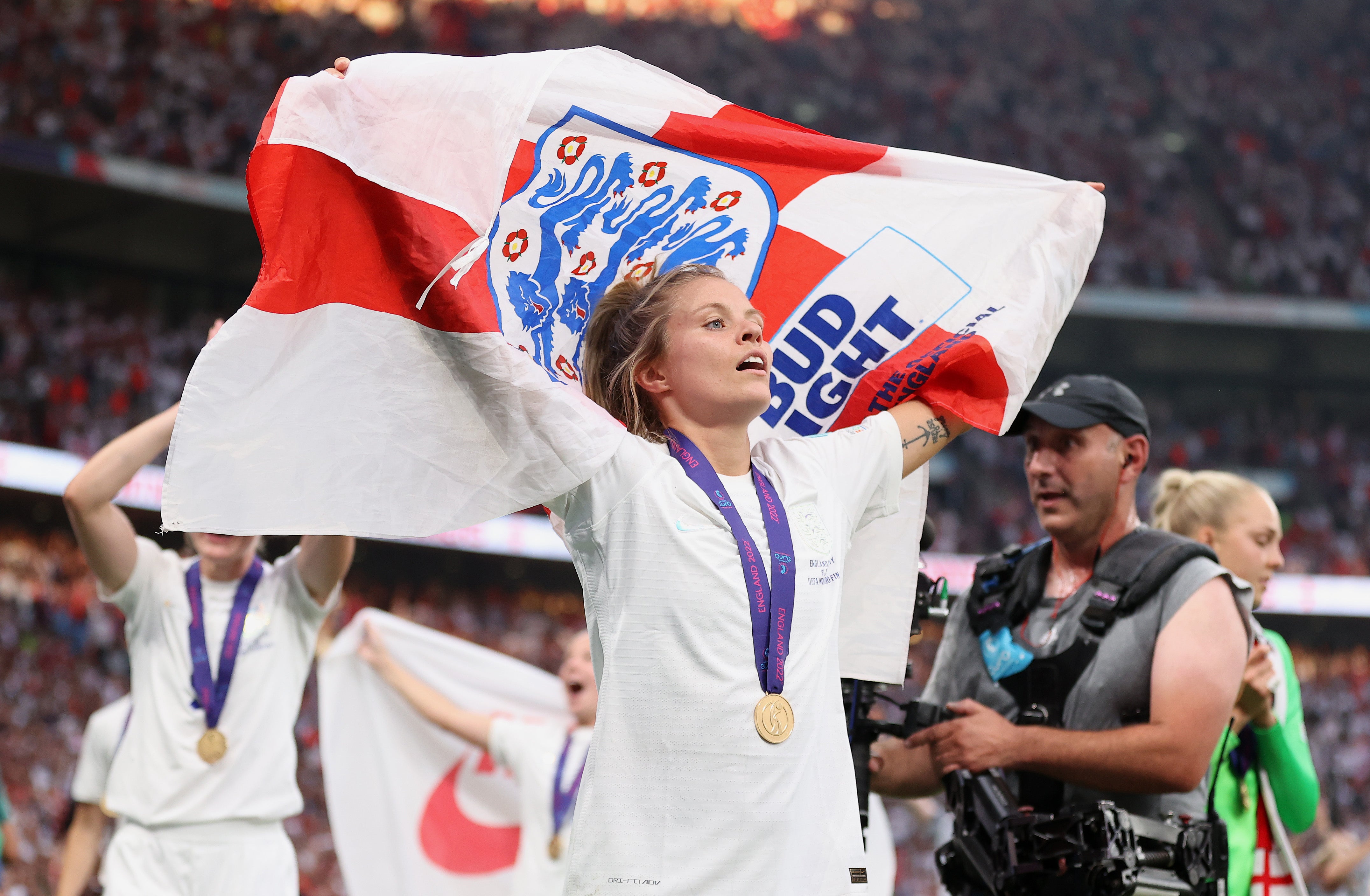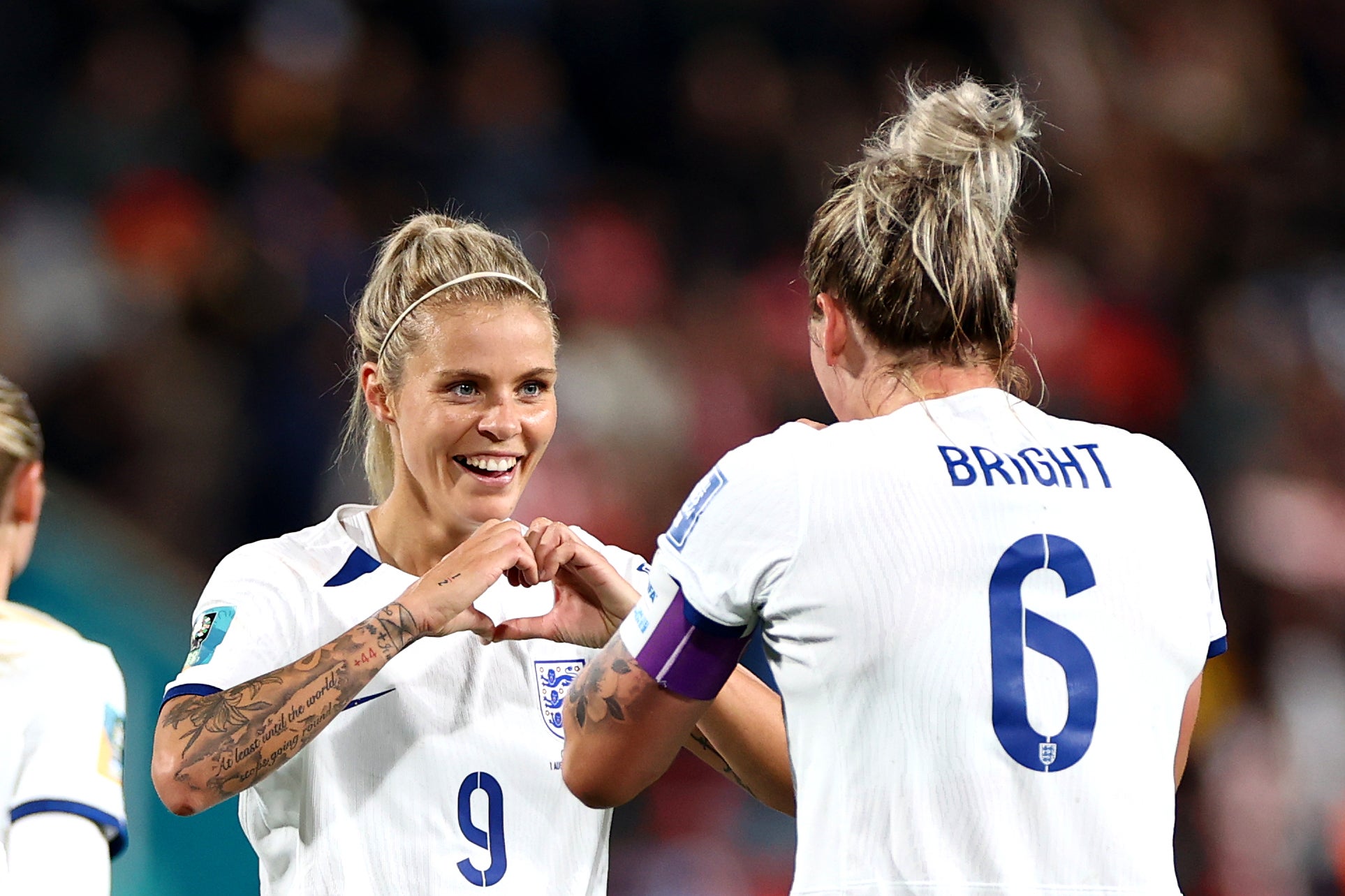Unique Rachel Daly will be impossible to replace after shock Lionesses retirement
Daly’s selflessness and versatility helped the Lionesses create history but her greatest skill was both a blessing and a curse, and England may not produce a player like her again

Your support helps us to tell the story
From reproductive rights to climate change to Big Tech, The Independent is on the ground when the story is developing. Whether it's investigating the financials of Elon Musk's pro-Trump PAC or producing our latest documentary, 'The A Word', which shines a light on the American women fighting for reproductive rights, we know how important it is to parse out the facts from the messaging.
At such a critical moment in US history, we need reporters on the ground. Your donation allows us to keep sending journalists to speak to both sides of the story.
The Independent is trusted by Americans across the entire political spectrum. And unlike many other quality news outlets, we choose not to lock Americans out of our reporting and analysis with paywalls. We believe quality journalism should be available to everyone, paid for by those who can afford it.
Your support makes all the difference.It is often said that Rachel Daly has the loudest voice in the Lionesses dressing room, but her announcement stunned her teammates into silence in Dublin. At the age of 32, after an eight-year England career that brought 84 senior caps and 16 goals, Daly revealed she would be retiring from international football – a late cameo off the bench against the Republic of Ireland were her final minutes for her country. “I would love nothing more than to play for England forever, but the time has come for me to hang my boots up on the international stage,” she said.
Daly leaves behind an immense contribution to the success of the Lionesses and the growth of the women’s game – an example for future generations to strive for. “There are not enough words to do you justice,” said the England captain Leah Williamson, leading the tributes from a shell-shocked squad. “Rachel has been an incredible part of our story and the history we’ve made together. It has been a privilege to work with her,” added manager Sarina Wiegman. “I have never worked with a player so versatile.”
After all, Daly was the striker who made history as a European Championship-winning left-back, selflessly placing England’s needs above her own. Daly started all six games as the Lionesses won the Euros, becoming as much of a defensive cornerstone in the side that wrote themselves into history at Wembley as Williamson, Lucy Bronze, Millie Bright and Mary Earps. When England needed a left-back, Daly sacrificed the allure of scoring goals to perform the duty of stopping them. She did so admirably. She did not let her country down.
But versatility can be as much of a curse as it can be a blessing in football. In praising Daly’s versatility, Wiegman meant her words to be a compliment, but they perhaps also strike home at why the Aston Villa forward is ending her international career so suddenly and, quite possibly, prematurely. Generally speaking, being seen as versatile is to be recognised for a more rounded skill set, rather than outstanding in a particular area. It sticks, too: versatile players, invariably, become the first to move, the first to give way when a problem arises.
It was no secret that Daly wanted her shot at striker; just as it was clear to everyone else that she deserved her opportunity. The season after lifting the Euros, Daly won the golden boot in the Women’s Super League for finishing as the division’s top scorer – firing 22 goals for an Aston Villa side that came fifth in the table. She travelled to the World Cup as England’s No 9, competing with Alessia Russo to lead the line, only to end up as England’s wing-back once again as Wiegman’s plans were suddenly disrupted by injuries and suspensions
Daly’s adaptability was an asset, her selflessness to once again play out of position and take up a key role in their switch to 3-5-2 a guiding light as England reached the Sydney final. But there was no reward at the end of it. As England lost the final to Spain, one result of the World Cup was Daly finding herself behind not just Russo in the pecking order but also Lauren Hemp, who Wiegman now saw as an option to play up front.

Already fighting for places and minutes with Lauren James, Beth Mead, Chloe Kelly in the most competitive area of the team, Wiegman was unable to offer Daly the assurances she was looking for when they discussed her game time. With Niamh Charles and Jess Carter now established options at left-back, through their performances for both Chelsea and England, as well as Alex Greenwood, should she move from centre-half, Daly no longer has defence to fall back on, either.
With the Football Association progressing in their plans to create a more natural pathway to the Lionesses by integrating the senior team with the Under-23s, perhaps Daly has seen the talent that is now coming through will only add to the competition ahead of next summer’s Euro 2025. “I feel now is the right time to pass on that baton to the next generation,” she said – fittingly, it was a selfless decision in itself.
Will England produce a player like Daly ever again? While she may have only made her England debut as recently as 2016, Daly’s journey to Lionesses regular already represents another era. When Daly played for England at the Under-17 World Cup and made her breakthrough in the WSL as a teenager with Lincoln, the next step was to head to the college system in America. In order to progress her career, Daly made the switch to St John’s University in New York, a route that would see her becoming a star in the National Women's Soccer League with Houston Dash while her England teammates moved to the likes of Arsenal, Manchester City and Chelsea, closer to home.
The pathway is different now, as WSL clubs focus more on their academy structures with oversight from the FA. Perhaps, as training methods and coaching become more regulated as the professional game continues to grow, there will be fewer players like Daly, whose journey gave her the qualities to specialise in not one but two (diametrically opposed) positions. "She’s put her heart and soul into every game, playing not only for the badge but playing for every little girl who loves the sport,” said Kay Cossington, the FA women’s technical director.
Her achievements in football and legacy with the Lionesses will be recognised in the next round of European qualifiers; but for now, her shock retirement leaves a void in the England dressing room. It is a spirit the Lionesses may find impossible to replace, and a team that is undoubtedly indebted to Daly’s versatility may realise it had been taking it for granted all along.



Join our commenting forum
Join thought-provoking conversations, follow other Independent readers and see their replies
Comments